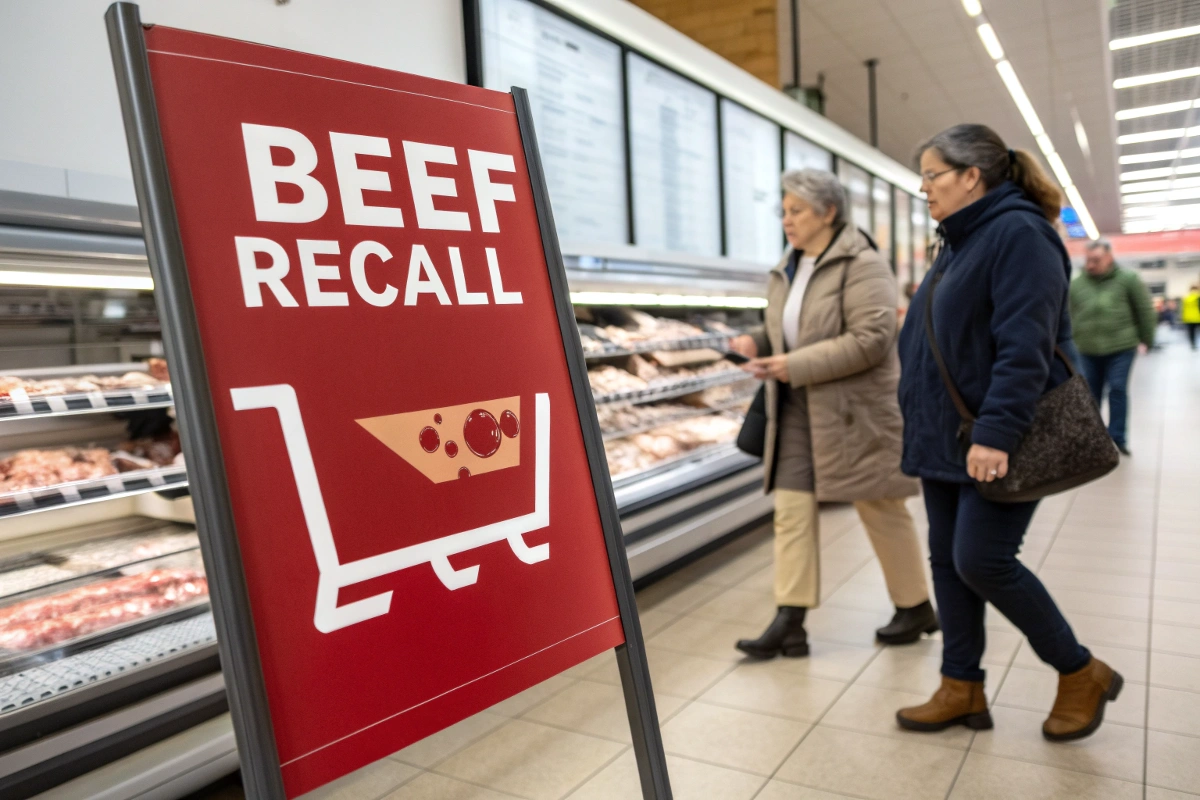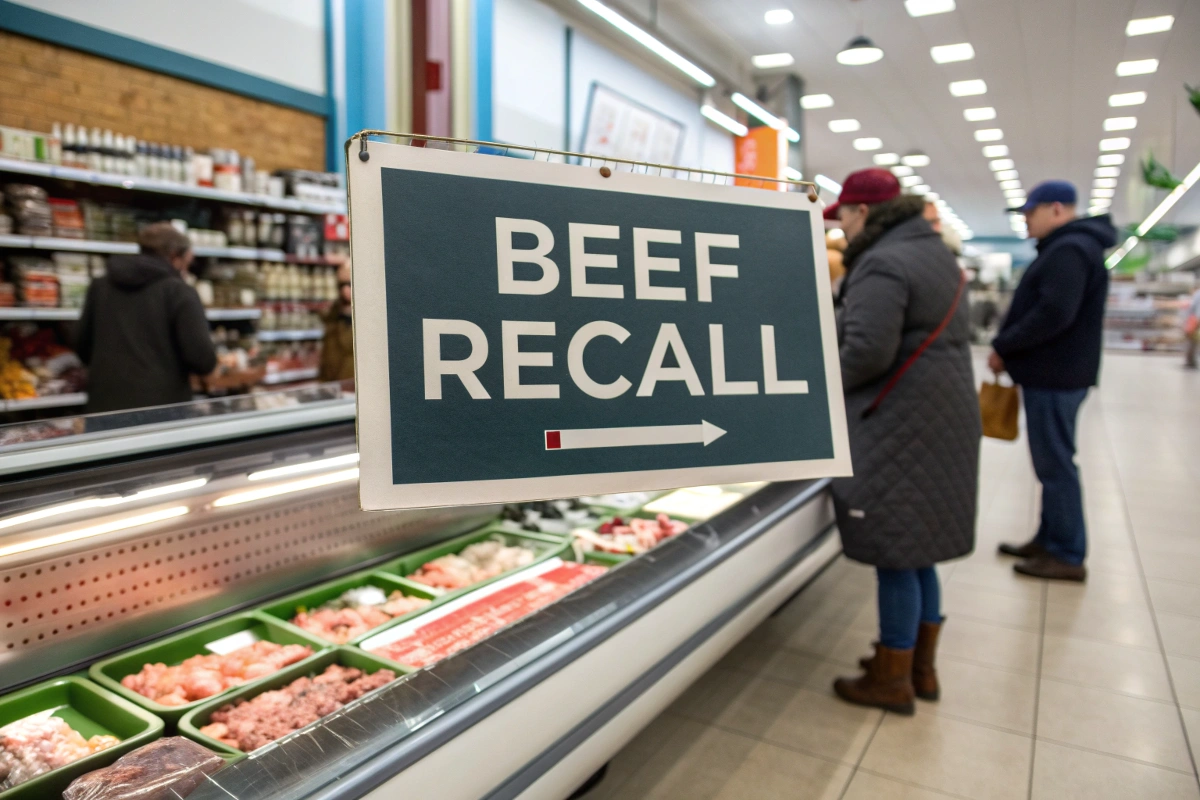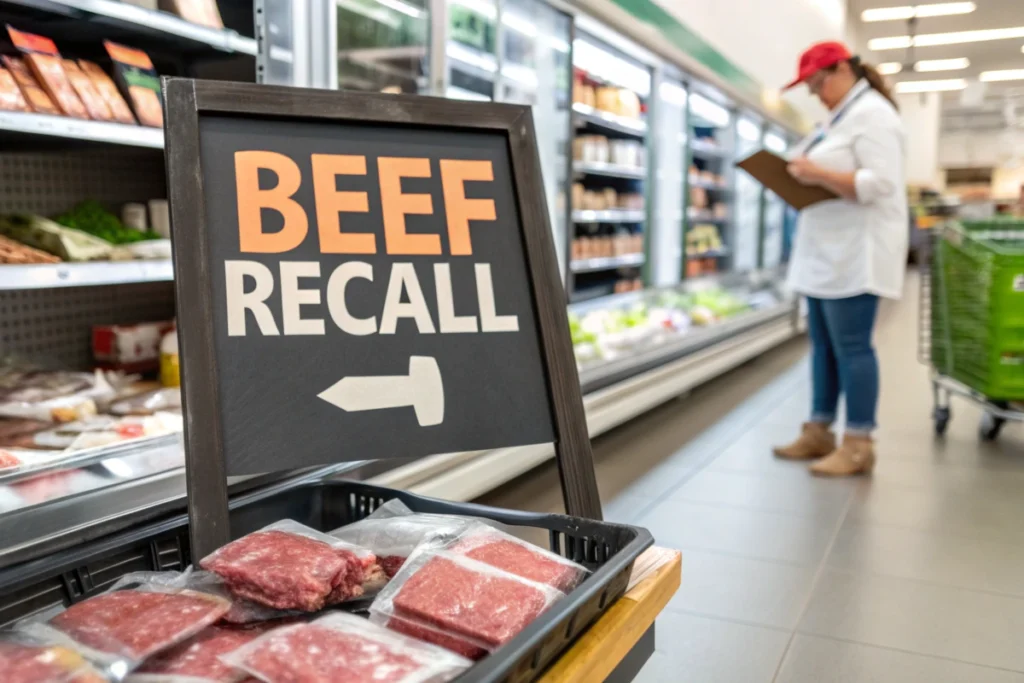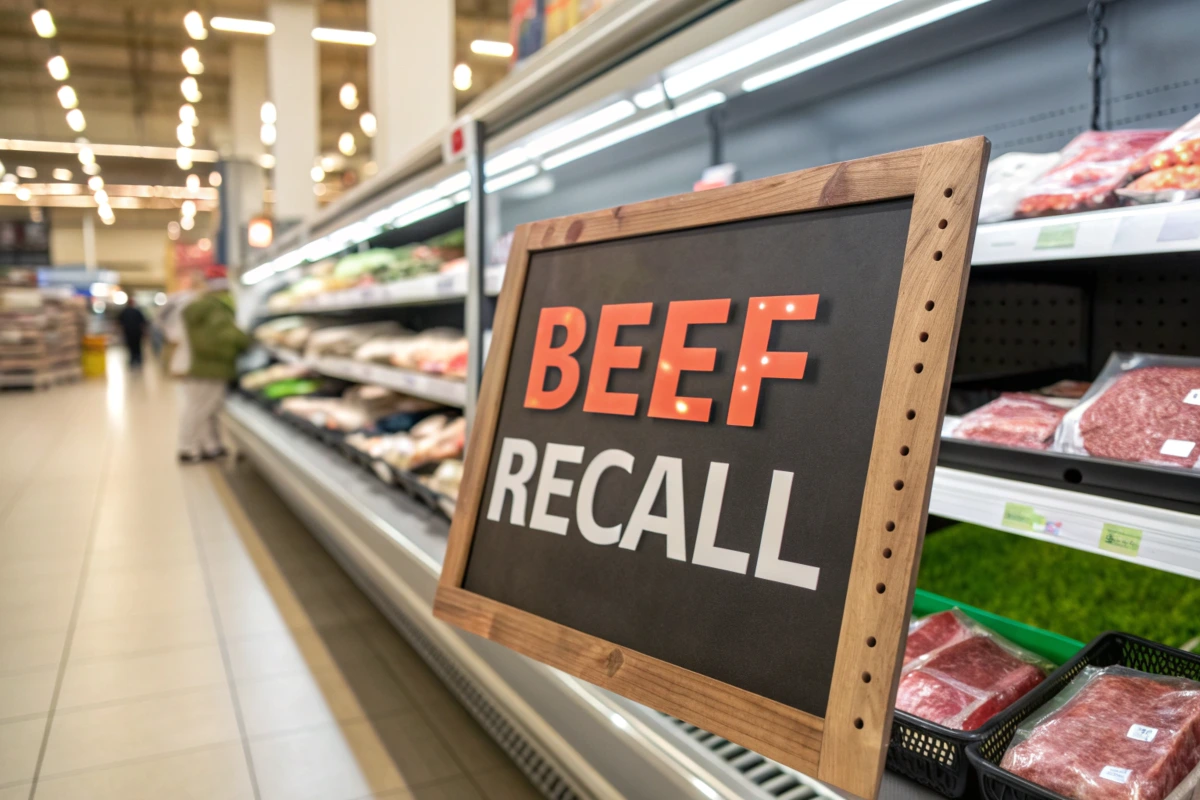Beef recall is a critical aspect of food safety, ensuring that potentially harmful beef products are removed from the market to protect consumers. Whether due to contamination, mislabeling, or other safety issues, beef recalls serve as an essential safeguard against health risks. For instance, understanding the role of proper storage and preparation, like those highlighted in our healthy cottage cheese recipes, can also contribute to maintaining food safety at home. These measures, while sometimes disruptive, are crucial to ensuring trust in the food supply chain and keeping your family safe. For more tips on responsible food choices, explore our guide to best seafood near me, which emphasizes quality and safety in dining options.
Food safety in beef production involves stringent measures at every step, from raising livestock to processing, packaging, and distribution. However, despite these precautions, issues can still arise. When a problem is detected, a recall ensures that the affected products are removed from shelves and households as quickly as possible.
But why do beef recalls happen? Several factors can lead to a recall, ranging from bacterial contamination to errors in labeling. Understanding these causes is crucial for consumers to stay informed and take appropriate action when recalls are announced.
Common Causes of Beef Recall
Contamination by Harmful Pathogens
The most frequent cause of beef recall is contamination by harmful bacteria such as E. coli, Salmonella, or Listeria monocytogenes. These pathogens can enter the food supply during various stages of production, including slaughter, processing, or packaging. Contaminated beef poses serious health risks, including foodborne illnesses that can lead to severe symptoms like diarrhea, abdominal pain, and fever.
- E. coli O157:H7: This strain of bacteria is particularly dangerous, especially for children, the elderly, and individuals with weakened immune systems. It often spreads through undercooked beef or cross-contamination during food preparation.
- Salmonella: Known for causing salmonellosis, this pathogen can survive in raw or undercooked beef. Symptoms include nausea, vomiting, and prolonged digestive issues.
- Listeria monocytogenes: Although less common, listeria contamination is severe, especially for pregnant women, newborns, and the elderly. Unlike many bacteria, listeria thrives in refrigerated conditions.

Mislabeling and Undeclared Allergens
Another significant cause of beef recall is mislabeling or the presence of undeclared allergens. Proper labeling is essential to inform consumers about the ingredients and potential allergens in their food. A recall might occur if:
- The packaging fails to disclose allergens like soy, wheat, or dairy.
- The product is mislabeled as beef but contains other meats.
- Nutritional information or expiration dates are incorrect.
Undeclared allergens pose serious health risks to individuals with food allergies, making accurate labeling a priority for beef producers.
Packaging Defects and Improper Handling
Sometimes, recalls stem from issues with packaging or handling. These include:
- Defective seals or compromised packaging that allows bacteria to enter.
- Use of non-food-grade materials in packaging that could leach harmful substances.
- Errors during transportation or storage, such as improper refrigeration, which can lead to spoilage.
Consumers might unknowingly purchase beef that appears safe but is contaminated or spoiled due to these factors.
Building Awareness Among Consumers
Understanding the common causes of beef recalls empowers consumers to make safer choices. It’s essential to stay informed about the latest recalls, practice safe food handling at home, and cook beef thoroughly to minimize the risk of foodborne illnesses. In the next section, we’ll explore the broader impact of beef recalls, from health risks to economic consequences, and what consumers can do in response.
The Impact of Beef Recall on Health and the Economy
Health Implications of Beef Recall
Beef recalls are not just administrative actions; they often signal serious health risks. Contaminated or mislabeled beef products can lead to various health issues, some of which can have long-term consequences. Understanding these risks helps consumers appreciate the importance of recalls and adopt better food safety practices.
Foodborne Illnesses
The primary health concern associated with beef recalls is foodborne illness. Pathogens like E. coli, Salmonella, and Listeria monocytogenes can cause symptoms ranging from mild discomfort to severe complications. Here’s a closer look:
- E. coli O157:H7: This strain can lead to severe gastrointestinal distress and, in rare cases, hemolytic uremic syndrome (HUS). HUS can cause kidney failure, particularly in vulnerable populations like children and the elderly.
- Salmonella: Infections can result in prolonged digestive issues, fever, and in extreme cases, hospitalization. Severe salmonellosis can spread from the intestines to other parts of the body, requiring immediate medical attention.
- Listeria monocytogenes: Although rare, listeria infections can be fatal. Pregnant women face additional risks, as listeriosis can lead to miscarriage, stillbirth, or severe infection in newborns.
Allergic Reactions
When beef is mislabeled or contains undeclared allergens, individuals with food allergies face significant risks. Consuming products with hidden allergens like soy, wheat, or dairy can trigger reactions ranging from mild rashes to life-threatening anaphylaxis. For individuals with severe allergies, mislabeling can be a matter of life or death.
Psychological Stress
The psychological impact of beef recalls shouldn’t be underestimated. Families affected by foodborne illnesses may experience anxiety, stress, and even post-traumatic symptoms, particularly if the illness results in hospitalization or long-term health issues. This emotional toll reinforces the importance of proactive measures to prevent recalls.

Economic Consequences of Beef Recall
Beef recalls have far-reaching economic implications that affect stakeholders across the supply chain, from producers to consumers. Understanding these impacts underscores the importance of food safety at every level.
Cost to Producers
For beef producers, recalls can lead to significant financial losses. Costs include:
- Product Disposal: A recall often involves removing and destroying large quantities of beef, leading to wasted resources.
- Legal Fees and Settlements: If a recall results in illnesses or lawsuits, companies may face hefty legal expenses and compensation payouts.
- Reputational Damage: The loss of consumer trust can have a lasting impact on sales and brand reputation, often requiring expensive marketing efforts to rebuild credibility.
For example, in high-profile beef recalls, companies have faced losses in the millions due to lawsuits, fines, and reduced consumer confidence.
Impact on Retailers and Restaurants
Retailers and restaurants also bear the brunt of beef recalls. They must remove affected products from shelves or menus, which leads to:
- Revenue Loss: The absence of a popular product like beef can reduce overall sales.
- Operational Disruption: Staff must manage the logistics of removing recalled products, issuing refunds, and addressing customer concerns.
- Brand Reputation: Like producers, retailers and restaurants may suffer from diminished trust if associated with unsafe food.
Increased Regulatory Oversight
Beef recalls often prompt stricter regulatory scrutiny, leading to increased costs for compliance. Producers may need to invest in new safety protocols, staff training, or equipment upgrades to meet updated standards. While these measures are necessary, they can strain smaller businesses with limited resources.
Consumer Impact
Recalls also affect consumers economically. Families may need to discard purchased beef products, resulting in wasted money. Additionally, recalls can lead to increased prices for safe, high-quality beef due to higher production costs.
Minimizing the Impact of Beef Recall
To mitigate the health and economic consequences of beef recalls, stakeholders must work together:
- Producers should prioritize rigorous safety checks, transparent labeling, and sustainable practices to prevent recalls.
- Regulatory Agencies must enforce strict standards and provide clear communication to the public during recalls.
- Consumers can play their part by staying informed, practicing proper food storage and preparation, and supporting brands with strong safety records.
In the next section, we’ll explore how consumers can respond to beef recalls effectively and the steps they can take to ensure their safety and well-being.
How to Respond to Beef Recall and Prevent Future Risks

What to Do During a Beef Recall
When a beef recall is announced, consumers need to act quickly to protect their health and ensure the safety of their households. Here’s a step-by-step guide to handling a recall:
Check Your Inventory
- Identify the Product: Review the details of the recall, including the brand name, product type, lot numbers, and expiration dates. Cross-check this information with the beef products in your fridge or freezer.
- Segregate Affected Products: If you find a recalled product, set it aside immediately to prevent accidental consumption.
Follow Recall Instructions
- Dispose Safely: Many recalls recommend throwing the product away in a sealed bag to prevent contamination. If instructed, return the product to the store for a refund.
- Contact the Manufacturer: In some cases, manufacturers provide additional instructions or compensation for affected products.
Monitor for Symptoms
If you or someone in your household has consumed recalled beef, stay alert for symptoms of foodborne illness, such as nausea, diarrhea, fever, or abdominal pain. Seek medical attention immediately if symptoms appear, particularly in vulnerable individuals like young children, the elderly, or those with weakened immune systems.
Spread Awareness
Help protect others by sharing information about the recall. Post on social media, inform friends and family, and encourage them to check their products as well. This collective effort ensures that more people can avoid potential health risks.
Preventing Future Beef Recall
While recalls are sometimes inevitable, proactive measures can significantly reduce their frequency and impact. Here’s how different stakeholders can contribute:
Producers and Suppliers
- Enhance Safety Protocols: Implement rigorous quality checks at every stage of production, from slaughterhouses to packaging facilities.
- Invest in Technology: Utilize advanced technologies like blockchain for traceability, ensuring rapid identification of contaminated batches.
- Train Employees: Regular training on hygiene and safety standards minimizes errors that can lead to contamination.
Regulatory Agencies
- Strengthen Inspections: Conduct regular inspections of beef production facilities to ensure compliance with safety regulations.
- Promote Transparency: Provide clear and accessible information to consumers during recalls, including detailed guidelines for affected products.
- Encourage Innovation: Support research into safer food production methods, such as alternative processing techniques and pathogen detection tools.
Consumers
- Choose Trusted Brands: Support companies with strong safety records and transparent sourcing practices.
- Practice Safe Storage: Store beef at the correct temperature (below 40°F) and follow recommended freezing guidelines to prevent spoilage.
- Cook Beef Thoroughly: Always cook beef to an internal temperature of 145°F for steaks and roasts, and 160°F for ground beef, to kill harmful bacteria.
The Role of Education in Preventing Recall
Education is a powerful tool in minimizing the risk of beef recalls. When all parties involved understand the risks and their roles in maintaining safety, the entire food chain becomes more robust.
For Consumers
Awareness campaigns can teach consumers how to read labels, store food properly, and recognize symptoms of foodborne illnesses. Encouraging safe cooking practices also reduces the risk of illness from contaminated products.
For Producers
Training programs focused on hygiene, quality control, and crisis management empower producers to maintain higher safety standards. Educational initiatives should also address the importance of ethical practices, such as accurate labeling and sustainable sourcing.
For the Food Industry
Collaboration between regulators, producers, and retailers fosters a culture of safety. Industry conferences and workshops can share best practices and innovations, ensuring continuous improvement in food safety protocols.

FAQs About Beef Recall
1. What should I do if I’ve consumed recalled beef?
Monitor for symptoms of foodborne illness, such as fever, nausea, or diarrhea. If symptoms appear, consult a healthcare provider immediately.
2. How can I stay informed about beef recall?
Sign up for alerts from the USDA or FDA websites, follow trusted news sources, or check the brand’s official website for announcements.
3. Can I return recalled beef to the store for a refund?
Yes, most retailers will accept returns of recalled products and provide refunds. Always follow the specific instructions provided during the recall.
4. Why are beef recalls so common?
Beef recalls often occur due to contamination with pathogens like E. coli or Salmonella, mislabeling, or the discovery of foreign objects in the product. The complexity of the supply chain increases the likelihood of errors.
5. Is organic beef less likely to be recalled?
While organic beef adheres to stricter production standards, it is not immune to recalls. Contamination can occur during processing or packaging, regardless of how the beef is raised.
Conclusion
Beef recalls are a critical safety measure that protects public health and maintains accountability within the food industry. While recalls can be alarming, they also highlight the importance of vigilance, transparency, and collaboration across the food chain.
By understanding the causes and impacts of beef recalls and taking proactive steps, we can contribute to a safer food system. Whether it’s choosing trusted brands, practicing safe cooking, or staying informed, everyone has a role in preventing foodborne illnesses. Together, we can ensure that the beef we consume is not only delicious but also safe and responsibly produced.
Stay updated on food recalls, support responsible farming practices, and share food safety tips with your family and friends. Your awareness and choices make a difference in building a healthier and safer food system for all.

